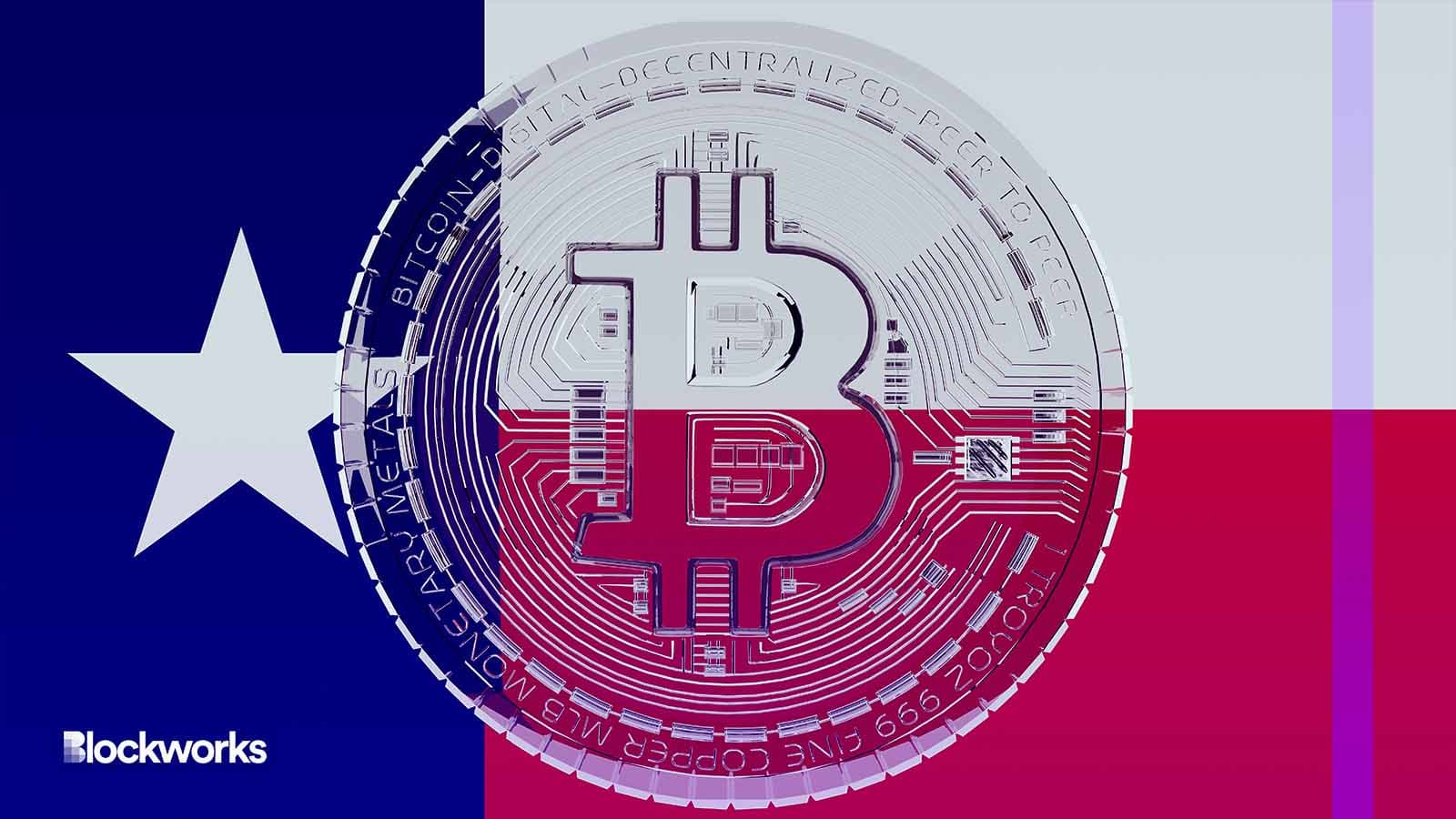Bitcoin Mining Load Flexibility Can ‘Significantly Mitigate Power Shortages’ in Texas
A research paper modeled the reliability and carbon footprint of crypto mining in Texas

Global Image Archive/Shutterstock modified by Blockworks
Can bitcoin mining mitigate power shortages?
A paper published in the Institute of Electrical and Electronics Engineers thinks it’s a possibility. The document, which was first published back in April, looks at the use of energy by bitcoin miners in Texas.
“We show that the flexibility of mining loads can significantly mitigate power shortages and market disruptions that can result from the deployment of mining loads,” the paper said. This could allow policymakers to “facilitate the participation of large mining facilities in wholesale markets and require them to provide mandatory demand response.”
According to a survey from Payless Power, 58% of the 727 Texans surveyed expressed concern about the Texas power grid handling mining.
Texas is home to a number of bitcoin mining companies — including Marathon and Riot Platforms. In the past, both Governor Greg Abbott and Senator Ted Cruz have expressed their desires to make Texas more bitcoin and crypto friendly.
The Texas power grid, however, has shown an inability to keep up with surging demand during winter storms and heat waves.
Through demand response programs, the Electric Reliability Council of Texas, or ERCOT, gives financial incentives to miners so that they cut power when the grid is facing “high system demand.” When the miners shut down, the power gets redirected to the grid.
“Considering the fast integration of new mining facilities, offering proper financial incentives could potentially encourage the new facilities being built in locations with lower carbon footprint and high societal benefit,” the researchers wrote.
Payless Power found that 48% of those surveyed are concerned about the strain that crypto mining places on the power grid.
According to researchers, the model shows “that while the reliability of electric systems with higher renewable penetration is more susceptible to the integration of mining loads, full flexibility at all times can significantly avoid the reliability concerns created by the mining loads.”
Legislators in Texas introduced Senate Bill 1751, which could remove tax breaks while also requiring miners using more than 10 megawatts to register as flexible load operators with ERCOT – the state’s largest energy operator.
As Blockworks previously reported, ancillary services would be the demand response impacted by the bill — which is when miners sell the right to ERCOT to balance the grid by curtailing the miner load.
Both mining companies and blockchain advocates have pushed back against the bill, with the head of development at Texas Blockchain Council saying that bitcoin mining “is uniquely capable of addressing the needs of the grid, unlike any other industry.”
In an interview with Blockworks, Lee Bratcher, president of the Texas Blockchain Council, said that the council will continue to advocate for mining in the state. While Bratcher does not believe that Senate Bill 1751 will pass, he and the council will continue to push back against the bill.
According to the paper, different locations present distinct advantages and disadvantages. It says that financial incentives could “potentially encourage the new facilities being built in locations with lower carbon footprint and high societal benefit.”
When looking to build in Texas, some crypto miners have settled in rural towns, causing economic booms in generally overlooked areas — an argument used by proponents of mining to advocate for friendly legislation.
“Both location and flexibility are critical factors that policymakers and grid operators should consider when designing ancillary service programs that take advantage of the unique characteristics of the mining loads and enhance their grid-supporting capabilities,” the researchers wrote.
A number of states are currently weighing legislation both for and against crypto mining. States including Montana, Arkansas, Missouri and Mississippi have either introduced or passed legislation in favor of miners. New York, on the other hand, paused all proof-of-work crypto mining operations last November.
Get the news in your inbox. Explore Blockworks newsletters:
- The Breakdown: Decoding crypto and the markets. Daily.
- Empire: Crypto news and analysis to start your day.
- Forward Guidance: The intersection of crypto, macro and policy.
- 0xResearch: Alpha directly in your inbox.
- Lightspeed: All things Solana.
- The Drop: Apps, games, memes and more.
- Supply Shock: Bitcoin, bitcoin, bitcoin.






